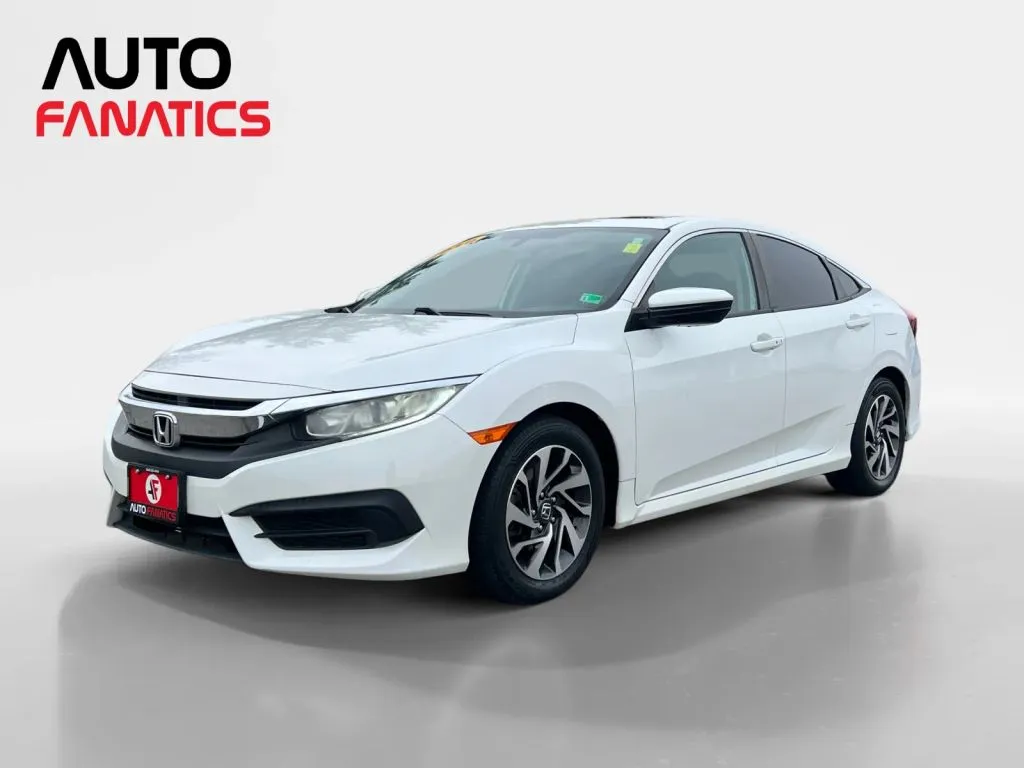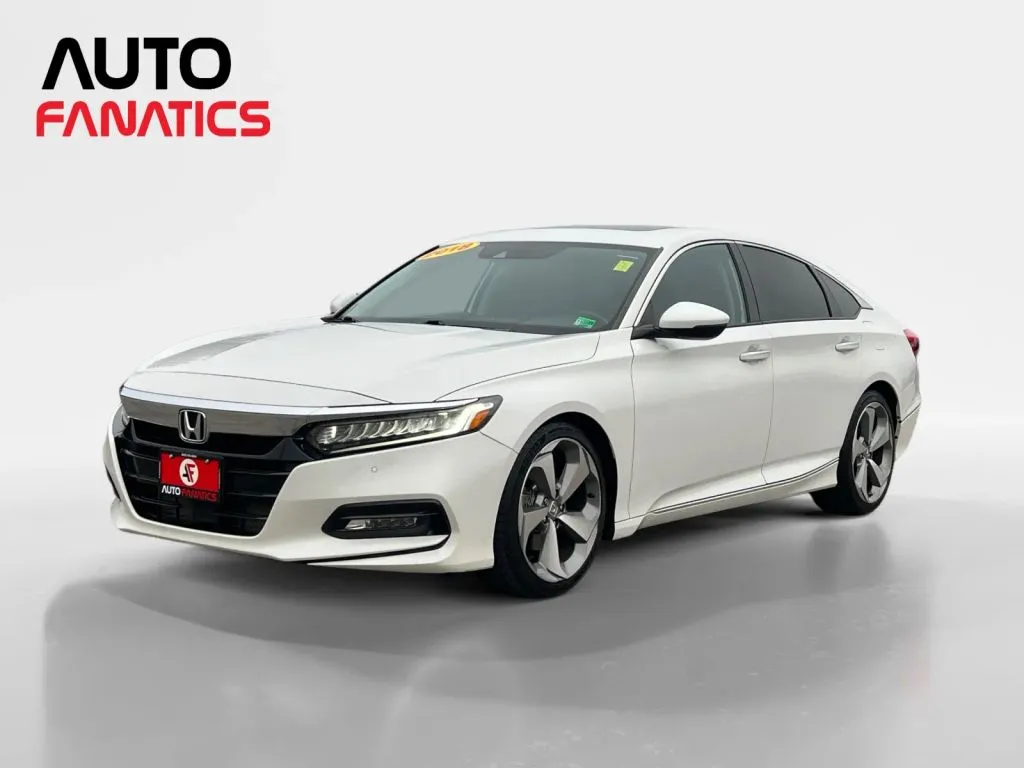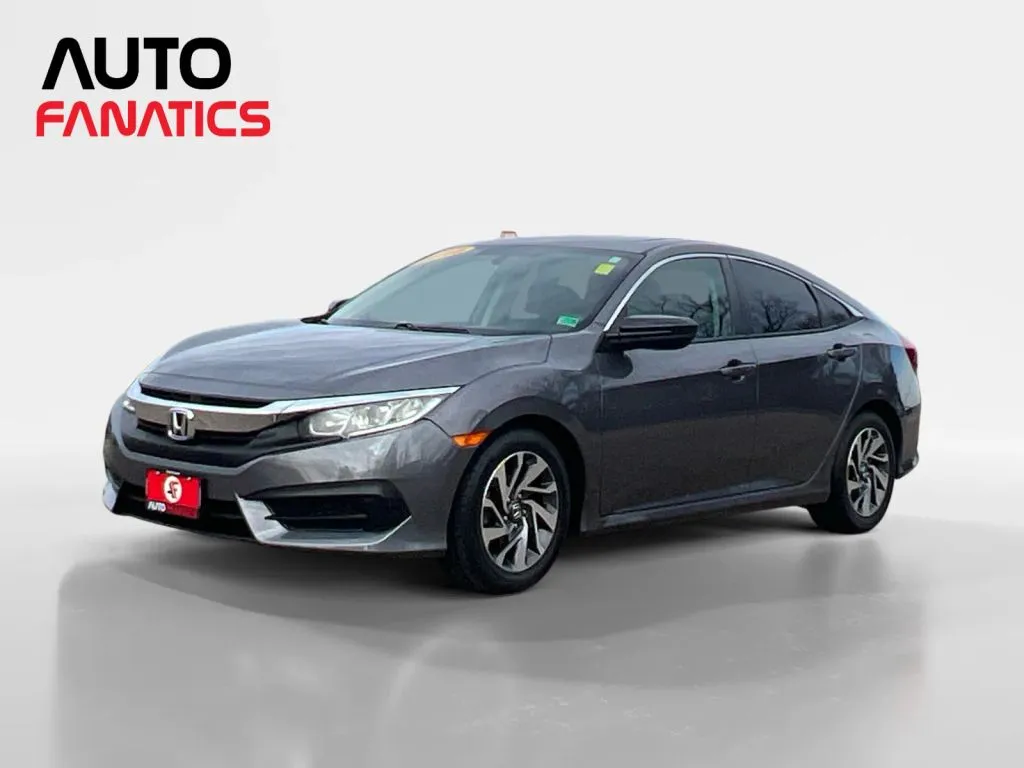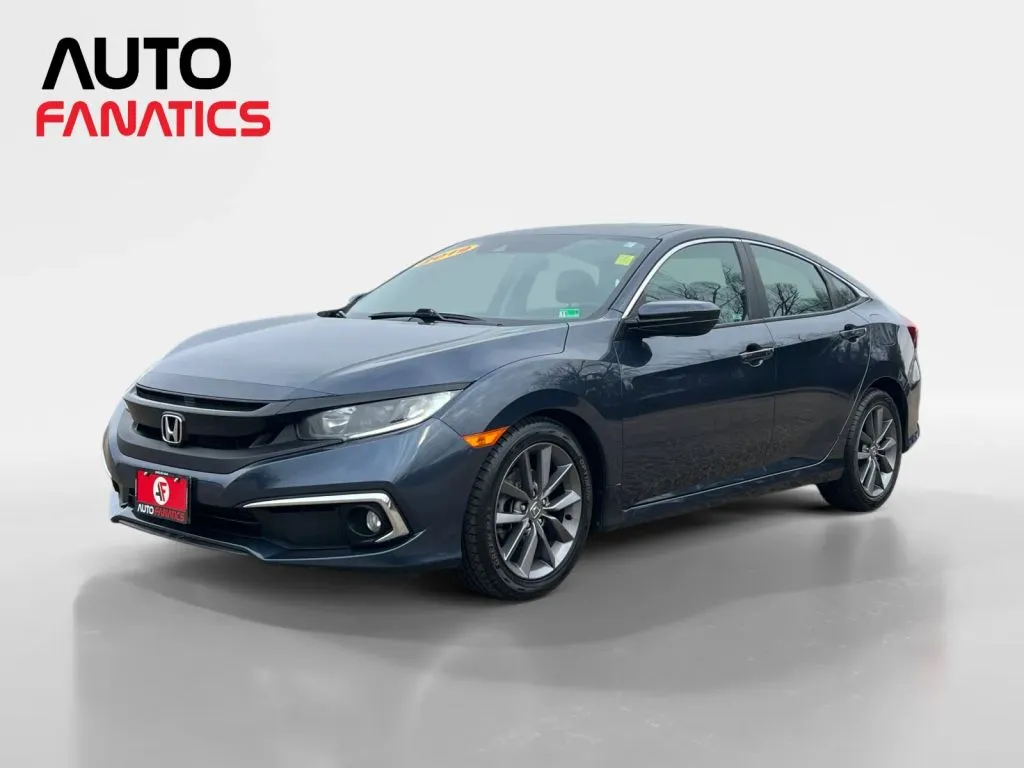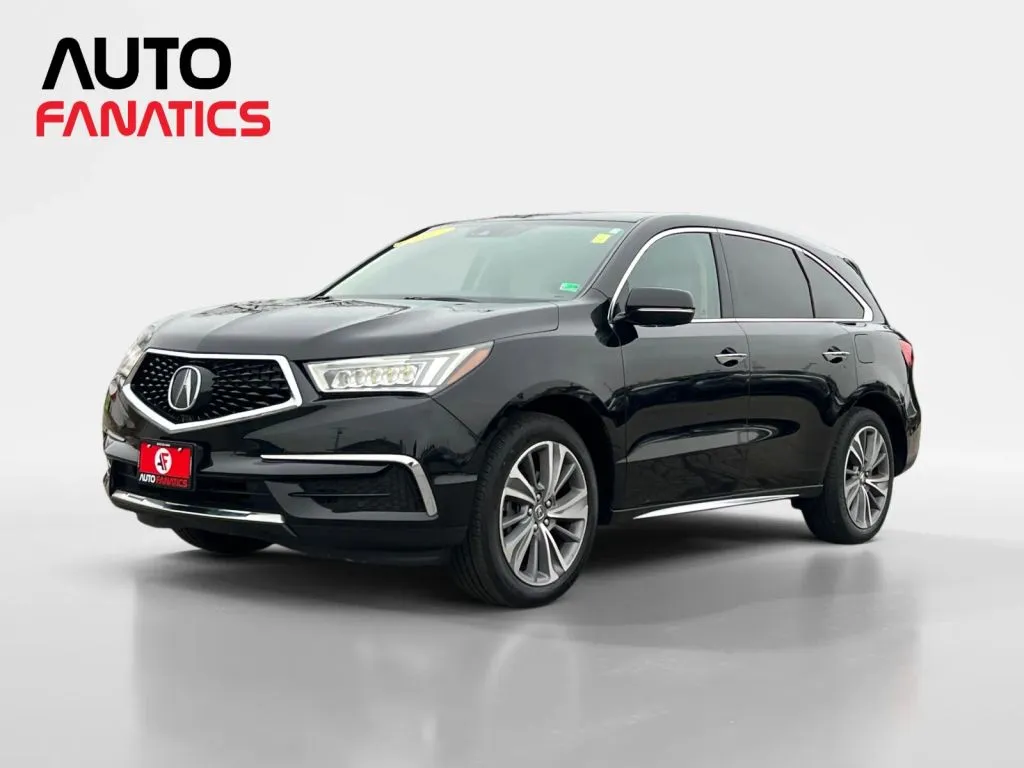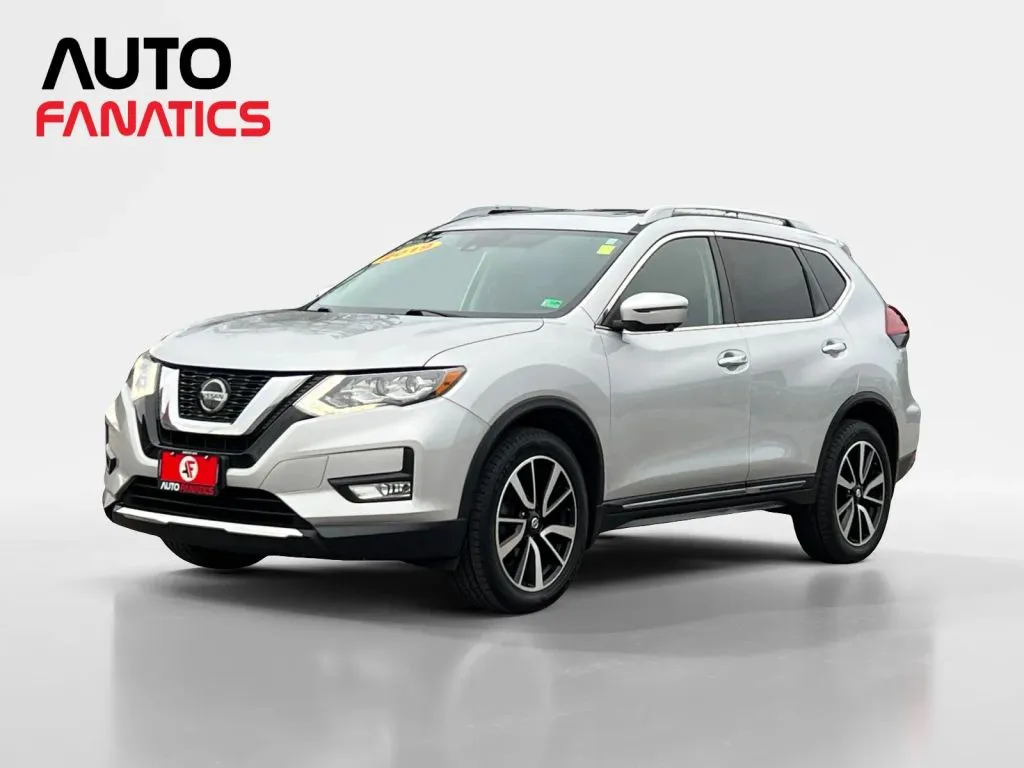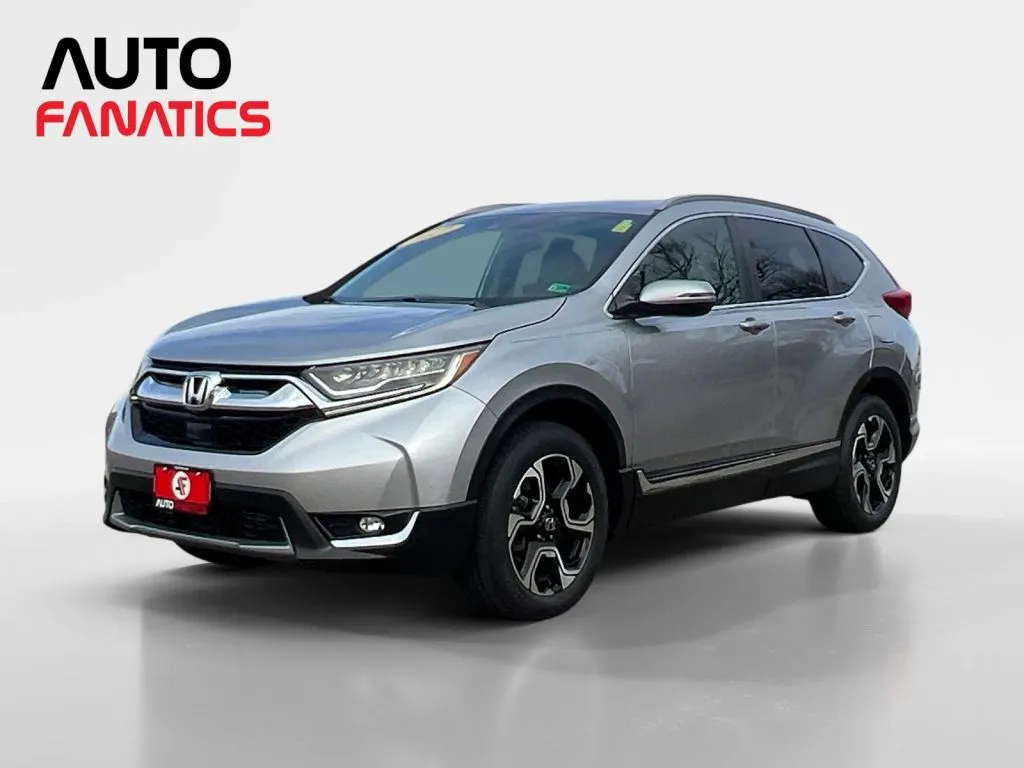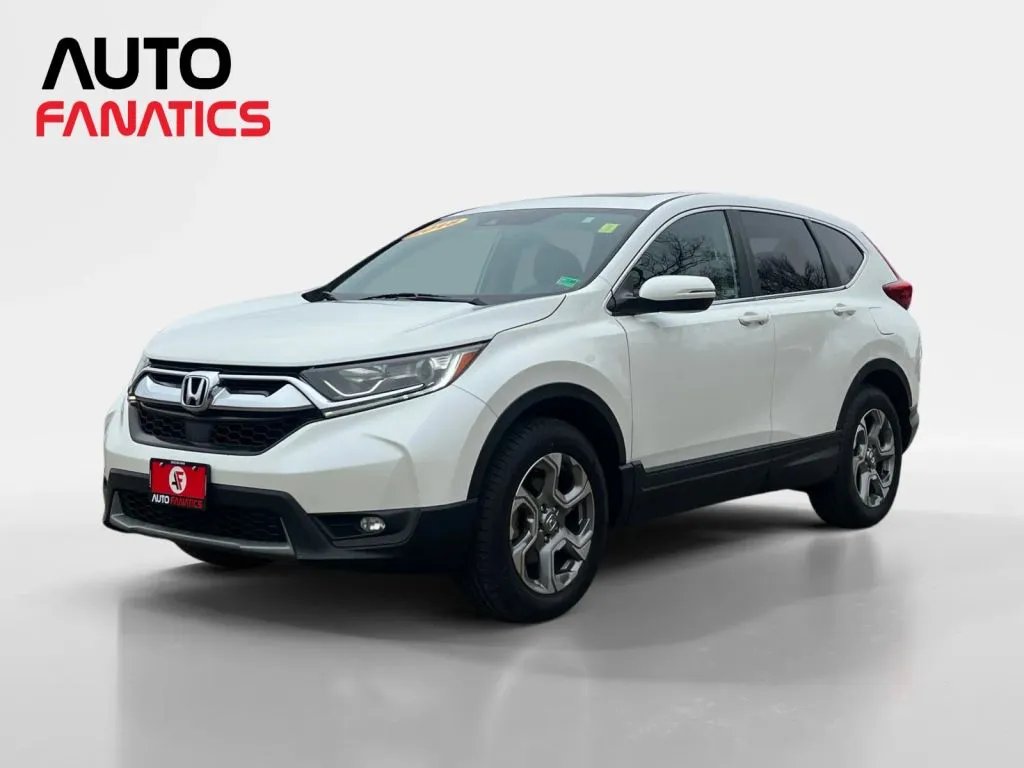Car Financing for All Credit Types: The Complete Guide
Table of Contents
Car Financing for All Credit Types: The Complete Guide
Here in Fredericksburg, having a reliable car is essential for getting to work, running errands, and living your life. We get it. We also know that life happens, and not everyone has a perfect credit score. That shouldn’t stand in the way of you driving a safe, high-quality vehicle. As your local dealership, we see our customers as neighbors, and we’re dedicated to finding solutions that work for our community. This guide is our way of sharing what we know, so you can feel prepared and confident when you start shopping. We’ll walk you through the process, because our expertise in securing financing for all credit types means we can help almost anyone find a great car and a great loan.
Key Takeaways
- Your credit score is a guide, not a gatekeeper: While a higher score helps, lenders also consider your income and down payment. This means you have multiple paths to getting approved for a loan that works for you, even if your credit has a few bumps.
- Preparation is your best negotiating tool: Before you start shopping, check your credit report, use a loan calculator to find a comfortable payment, and get pre-qualified. This homework puts you in a stronger position and makes the entire process smoother.
- Focus on the total cost, not just the monthly payment: A low payment can be misleading if it comes with a long loan term or hidden fees. Always understand the interest rate and full loan terms to ensure you're getting a truly good deal without any surprises.
How Your Credit Score Shapes Your Car Loan Options
Thinking about financing a car can feel like a big step, and your credit score is a key piece of the puzzle. It’s one of the first things lenders look at, but it’s not the only thing that matters. Understanding how your score works and what it means for your loan options can help you feel more confident and prepared. Here at Auto Fanatics, we believe everyone deserves a great car and a fair deal, no matter their credit history. Let’s break down what you need to know.
What Does Your Credit Score Really Mean?
Your credit score is essentially a three-digit number that gives lenders a quick look at your financial habits. Think of it as a summary of your history with borrowing and repaying money. Lenders use this score to predict how likely you are to pay back a loan on time. A higher score suggests lower risk, while a lower score might indicate a higher risk. Because of this, your credit score has a major impact on the kind of auto loan a lender will offer you. But don't let a number define your chances. We work with a network of lenders to find financing solutions for all kinds of credit situations, so you can get approved and get on the road.
Breaking Down the 5 Credit Score Ranges
Credit scores are typically grouped into different tiers, which help lenders quickly assess an application. While the exact numbers can vary slightly, they generally fall into these categories:
- Superprime: 781–850
- Prime: 661–780
- Non-prime: 601–660
- Subprime: 501–600
- Deep Subprime: 300–500
If your score is in the Superprime or Prime range, you’ll likely have access to the most competitive interest rates. If you fall into the Non-prime, Subprime, or Deep Subprime categories, it doesn’t mean you can’t get a car. It just means lenders may see you as a higher risk and might offer different terms. Knowing where you stand is the first step toward finding the right financing for your next vehicle.
How Your Score Influences Loan Terms
Your credit score directly affects the terms of your car loan, especially the interest rate. A higher score typically gets you a lower Annual Percentage Rate (APR), which means you'll pay less in interest over the life of the loan. This can save you hundreds or even thousands of dollars. For example, a small difference in your APR can change your monthly payment significantly. You can see this for yourself by playing with different rates in our car loan calculator. Even if your score is on the lower end, many lenders offer flexible options. Some approve financing for applicants with a FICO score of 580 or below and may suggest adding a co-signer to secure better terms.
Debunking Common Credit Score Myths
One of the biggest myths we hear is that shopping around for a car loan will hurt your credit score. People worry that multiple applications will cause their score to drop. The good news is that this isn't true. According to the Consumer Financial Protection Bureau, credit scoring models recognize that you're rate shopping for a single loan. As long as you do your shopping within a short timeframe (usually 14 to 45 days), multiple inquiries are treated as one. So, feel free to explore your options. You can even get pre-qualified with Capital One through our site to see where you stand without any impact on your credit.
Find the Right Car Loan for Your Credit
Finding the right car loan can feel like a puzzle, but it’s much easier when you know what the pieces are. Your credit score is a key factor, but it’s not the only one. There are several types of loans out there, and one of them is bound to be the right fit for your financial picture. Understanding your options is the first step toward getting behind the wheel with a payment plan you feel good about. Whether your credit is sparkling or needs a little work, there’s a path forward. Let’s walk through the most common types of auto loans so you can find the one that works best for you.
Traditional Bank Loans
This is the route most people think of first. A traditional auto loan comes from a bank or credit union. These lenders look closely at your financial history, and as you might expect, your credit score has a major impact on the interest rate and terms they’ll offer you. If you have a solid credit history, you can often secure very competitive rates this way. It’s always a good idea to see what your own bank can offer. At Auto Fanatics, we also partner with trusted lenders like Capital One to streamline this process for you. You can even get pre-qualified on our website to see where you stand before you even start shopping.
Secured Loans
A secured loan is one that’s backed by collateral—an asset the lender can take if you stop making payments. For car loans, this is standard practice: the vehicle you’re buying serves as the collateral. This arrangement makes the loan less risky for the lender, which can translate into easier approval and better interest rates for you, even if your credit isn’t perfect. Don’t let the term “secured loan” intimidate you; it’s the normal structure for almost every auto loan. It’s one of the main reasons why financing a car is often more accessible than getting other types of loans. Ready to see what you qualify for? You can start the process and get approved right on our site.
Credit Builder Loans
If you’re focused on improving your credit score before making a big purchase, a credit builder loan is a fantastic tool. Here’s how it works: a lender approves you for a small loan, but instead of giving you the cash, they place it in a locked savings account. You then make small, regular payments over several months. These on-time payments are reported to the credit bureaus, helping to build or repair your credit history. Once you’ve paid the loan in full, the money in the savings account is yours to keep. While it’s not a direct way to buy a car, it’s a smart strategy for strengthening your financial profile so you can qualify for a better auto loan down the road.
Co-signed Loans
Have a family member or trusted friend with strong credit? Bringing them on board as a co-signer could be your ticket to a great loan. When someone co-signs, they agree to take legal responsibility for the loan if you’re unable to make the payments. Their good credit history reduces the lender’s risk, which can help you get approved and secure a much lower interest rate. This is a big commitment for your co-signer, so it’s important to have an open and honest conversation about the responsibilities involved. You can use a car loan calculator to see just how much a lower interest rate can save you each month.
Peer-to-Peer Lending
Peer-to-peer (P2P) lending is a modern alternative to traditional banks. These online platforms connect individual borrowers directly with individual investors who are willing to fund their loans. Because you’re not dealing with a large financial institution, the lending criteria can sometimes be more flexible. P2P lenders like LendingTree and Prosper have become popular options for people who may not fit the rigid profile required by a conventional bank. It’s another great avenue to explore, offering a different set of opportunities to find a loan that fits your needs and helps you get into your next vehicle.
Buy Here Pay Here Options
You may have seen dealerships that advertise "Buy Here Pay Here" (BHPH). This means the dealership provides its own in-house financing instead of working with outside banks. For buyers with significant credit challenges who have been turned down elsewhere, this can seem like the only option. However, it’s important to approach these situations with caution, as some BHPH lots have a reputation for high interest rates and less-than-ideal terms. At Auto Fanatics, we believe in a different approach. We work with a wide network of trusted lenders to find competitive financing for all our customers, ensuring a transparent and positive experience. Our focus is on building trust, which you can see in our customer reviews.
Where to Find the Best Car Loan for You
Once you have a handle on your credit score, it’s time to find a lender. The good news is that you have more options than ever before. From the bank down the street to a variety of online platforms, the key is to find a partner who understands your financial situation and offers you fair, transparent terms. It’s smart to explore a few different avenues to see who can provide the best rates and loan terms for your specific needs. This step is all about gathering information so you can make a confident decision.
Many people find it easiest to work directly with their dealership. At Auto Fanatics, we have relationships with a diverse network of lenders, including those who specialize in helping buyers with unique credit situations. This allows us to do the heavy lifting for you, matching you with the best available loan options without you having to fill out dozens of applications. You can start the process right now and get approved through our secure online application, saving you time and stress. Our goal is to make financing straightforward so you can focus on the fun part: choosing your next car.
Traditional Banks and Credit Unions
Your local bank or credit union is a familiar and often reliable place to start your search for a car loan. If you already have a checking or savings account with them, you have an established relationship, which can sometimes work in your favor. Credit unions, in particular, are member-owned and known for offering competitive interest rates and personalized service. However, traditional lenders can sometimes have stricter credit requirements, which might be a hurdle if your score is on the lower end. It’s always worth a conversation, though. Stop by or call your local branch to ask about their auto loan programs and see what kind of terms they can offer based on your credit profile.
Online Lenders
In recent years, online lenders have become a go-to for car financing, and for good reason. Their application processes are typically fast, simple, and can be completed from your couch. Many online lenders are also more flexible with credit requirements than traditional banks, making them a fantastic option if you’re working on building your credit. They use technology to look beyond just the credit score, considering other factors to get a fuller picture of your financial health. This modern approach opens up opportunities for many buyers who might have been declined elsewhere.
Upstart
Upstart is a great example of a lender that looks at more than just your credit score. They cater to individuals with credit scores as low as 300, making them a viable choice for those with a limited credit history.
OneMain Financial
Specializing in personal loans, OneMain Financial is known for working with individuals who have fair or poor credit. They offer secured loans, which can help you get approved even if your credit history has some bumps.
Avant
If you need funding quickly, Avant is a solid option. They are known for lending to people with lower credit scores and can often get the funds to you by the next business day after approval.
Oportun
For those with no credit history at all, Oportun can be a lifeline. They provide smaller loans designed specifically for individuals who are just starting to build their credit profile and may not qualify elsewhere.
Capital One
A well-known name in finance, Capital One offers a user-friendly online auto financing process for a wide range of credit scores. We partner with them to make your experience even smoother, and you can get pre-qualified with Capital One directly through our website to see your real rates and payment options.
LendingClub
LendingClub operates on a peer-to-peer model, which means they connect borrowers directly with investors. This can result in more flexible options for people with varying credit scores who are looking for a personal loan to purchase a vehicle.
Prosper
Similar to LendingClub, Prosper is another peer-to-peer lending platform. It offers personal loans that can be used for a car purchase, providing another potential avenue for those with less-than-perfect credit.
SoFi
If you have a good credit score, SoFi is worth a look. They offer competitive rates on personal loans with a fast funding process, making them an attractive choice for well-qualified buyers.
Alternative Financing Companies
If you've had trouble getting approved through banks or online lenders, don't lose hope. Alternative financing companies and specialized dealership programs are designed to help. These lenders, often called "second-chance" financers, look at your whole financial picture, including your income and job stability, not just your credit score. Here at Auto Fanatics, we believe everyone deserves a reliable vehicle. Our experienced finance team specializes in finding solutions for every situation. We work with a variety of lenders who are ready to help buyers in Fredericksburg and beyond, regardless of their credit history. We’re here to guide you through the process with transparency and respect, ensuring you find a financing plan that fits your budget and gets you on the road.
What to Expect During the Loan Application Process
Applying for a car loan can feel like a big step, but it’s more straightforward than you might think. The process is designed to be a simple exchange of information that helps a lender understand your financial picture. At Auto Fanatics, we work to make this as clear and stress-free as possible. Knowing what to expect can give you the confidence to move forward. From gathering your documents to getting the final approval, each step has a purpose: to match you with a loan that fits your budget and gets you behind the wheel of a car you love. Let’s walk through what the application process typically looks like.
What Documents Will You Need?
When you apply for a car loan, lenders need to verify a few key things about you. Think of it as a financial introduction. You’ll need to provide documents that offer proof of who you are, where you live, and your income. This usually includes a valid driver’s license, recent utility bills or a lease agreement to confirm your address, and recent pay stubs or bank statements to show your income. Gathering these items ahead of time will make the process much smoother. If you’re ready to get started, you can even apply online with us to see how simple it can be.
Meeting Income Requirements
Lenders want to see that you can comfortably handle your monthly car payment. They’ll look at your income to ensure you have enough money to cover the loan on top of your other expenses. This isn’t about judging your spending habits; it’s about setting you up for success. Lenders need to see that you earn enough money to make the monthly payments without stretching your budget too thin. A good way to get a sense of what you can afford is to use a car loan calculator to estimate payments based on your income and the price of the vehicle you’re considering.
How Much of a Down Payment Do You Need?
A down payment isn’t always required, but it’s almost always a good idea. Putting money down reduces the total amount you need to borrow, which can lower your monthly payment and potentially help you secure a better interest rate. The amount you need can vary, and many lenders offer flexible terms for buyers, especially those with unique credit situations. Don’t forget that your current vehicle can also help. You can use our tool to get your trade-in value, as that amount can be applied directly to your down payment, making your new car even more affordable.
What Determines Your Interest Rate?
Your interest rate is one of the most important parts of your loan, as it determines the overall cost of borrowing money. The biggest factor here is your credit score. As a general rule, your credit score has a major impact on the loan terms you’ll be offered, with higher scores typically leading to lower interest rates. Other factors, like the loan length, the vehicle's age, and the size of your down payment, also play a role. A great first step is to get pre-qualified to see what kind of rates you might be eligible for without affecting your credit score.
How Long Does Loan Approval Take?
Waiting for a loan decision can be nerve-wracking, but the good news is that it’s often a quick process. With online applications and efficient finance departments, you can frequently get a decision within the same day, sometimes in just a few minutes. Once you’re approved, the final steps move quickly. The lender will finalize the paperwork, and the funds are usually sent directly to the dealership so you can complete your purchase. Our goal at Auto Fanatics is to make this turnaround as fast as possible, so you don’t have to wait to drive your new car home.
Why Loan Applications Get Denied
It’s disappointing to have a loan application denied, but understanding the common reasons can help you prepare. A low credit score is a frequent hurdle, as it can signal higher risk to lenders. Other potential reasons include an income that’s too low to support the loan amount, a high debt-to-income ratio (meaning your existing debts take up too much of your income), or an unstable employment history. If your application is denied, don’t get discouraged. It’s an opportunity to identify areas for improvement. Our team is always here to discuss your options and help you find a path forward.
Smart Financing: How to Avoid Hidden Costs and Bad Deals
Financing a car can feel like the most complicated part of the buying process, but it doesn’t have to be. When you know what to look for, you can confidently sign on the dotted line, knowing you secured a great deal that truly works for you. It’s all about understanding the fine print, asking the right questions, and partnering with a dealership that believes in transparency. A great car-buying experience isn't just about finding the perfect vehicle; it's also about securing a loan that fits your life and your budget without any unwelcome surprises. Many buyers focus solely on the monthly payment, but a smart financing strategy goes deeper. It involves looking at the total loan cost, watching out for extra fees, and ensuring the terms are fair and flexible. From calculating the real cost of your loan to spotting potential red flags in the paperwork, being informed is your best tool. This knowledge protects your finances and gives you the peace of mind you deserve. Let’s walk through the key things to watch for so you can avoid common pitfalls and hidden costs, ensuring your financing plan is as solid as the car you’re driving home.
Calculate the True Cost of Your Loan
The sticker price of the car is just the starting point. The true cost of your vehicle is the total amount you’ll pay back over the life of the loan, which includes both the principal (the amount you borrow) and the interest. The interest rate and the loan term (how long you have to pay it back) are the two biggest factors that determine your final cost. A longer term might mean lower monthly payments, but you'll likely pay more in interest over time. Before you agree to anything, use a car loan calculator to play with the numbers and understand exactly what you’ll be paying.
Watch Out for These Hidden Fees
A great interest rate can be quickly undermined by a series of hidden fees. Some lenders charge an "origination fee," which is a percentage of the loan amount that gets taken out before you even receive the funds. You should also ask about potential late fees and what the penalty is for a missed payment. A trustworthy lender will be upfront about all associated costs. At Auto Fanatics, we believe in a clear and straightforward process, ensuring you understand every line item, including any costs associated with valuable automotive protection plans you might choose.
Plan Your Monthly Payments
Finding a monthly payment that fits comfortably into your budget is essential for long-term financial health. It’s easy to get excited about a new car and stretch your budget, but it’s a decision that can add stress down the road. Take an honest look at your income and expenses to find a payment amount that you can manage without strain. Getting pre-qualified can give you a clear picture of what you can afford before you even start shopping. Once you have an idea of your budget, you can confidently apply for financing knowing the payment is right for you.
Can You Pay Off Your Loan Early?
What if you get a bonus at work or want to put your tax refund toward your car loan? Paying off your loan ahead of schedule is a great way to save money on interest, but only if your lender allows it without a penalty. Some loan agreements include a "prepayment penalty" for paying off the balance early. Most reputable lenders don't have these, but it's always a critical question to ask. This is your money and your loan, and you should have the flexibility to manage it in a way that benefits you most.
Spotting Red Flags in a Loan Agreement
Protecting yourself from a bad deal starts with knowing what to avoid. Be extremely wary of loan types like "payday loans" or "title loans." While they promise fast cash, they often come with incredibly high interest rates and fees that can trap you in a difficult cycle of debt. A major red flag is any lender who seems to rush you through the paperwork or won't give you clear answers to your questions. A car loan is a significant financial commitment, and you should feel completely comfortable and informed before you sign anything.
How to Avoid Predatory Lending
The best defense against predatory lending is to be prepared. One of the smartest moves you can make is to get pre-qualified with a trusted lender like Capital One before you start shopping. This gives you a baseline offer to compare against. Don't be afraid to look beyond big banks; sometimes credit unions and online lenders offer more competitive rates. Above all, work with a dealership that has a proven reputation for integrity and customer care. Reading customer reviews can tell you a lot about how a business treats its community and whether they’re a partner you can trust.
How to Improve Your Credit for a Better Car Loan
If your credit score isn't where you'd like it to be, don't worry—you have the power to change it. Taking steps to improve your credit before you start car shopping can make a huge difference in the loan options available to you. A higher score often translates to a lower interest rate, which means a lower monthly payment and less money paid over the life of the loan. It’s one of the smartest financial moves you can make before buying a car.
Think of it as preparing for a marathon; you wouldn't just show up on race day without training. The same logic applies here. By putting in a little effort now, you set yourself up for success down the road. Even small improvements can open up more favorable financing terms. Once you feel confident about where you stand, you can get pre-qualified with Capital One right on our site to see your real-time options without impacting your score. The following steps are practical, proven ways to build a stronger credit profile.
Build a Strong Payment History
Your payment history is the single most important factor in your credit score, accounting for about 35% of it. Lenders want to see a consistent and reliable track record of you paying your bills on time. The best way to build this is straightforward: pay every single bill by its due date. This includes credit cards, student loans, rent, and utility bills. Making payments on time is a powerful signal to lenders that you are a responsible borrower.
To make it easier, set up automatic payments for at least the minimum amount due on all your accounts. You can also create calendar reminders a few days before each due date. Even one late payment can drop your score, so consistency is key. Over time, a solid history of on-time payments will have a major positive impact on all types of credit you hold.
Manage Your Credit Utilization
Your credit utilization ratio is the second-most-important factor in your score. It’s simply the amount of revolving credit you’re using compared to your total available credit. For example, if you have a credit card with a $1,000 limit and a $500 balance, your utilization is 50%. Lenders see high utilization as a sign of financial stress, so keeping this ratio low is a great way to improve your score.
Aim to keep your overall utilization below 30%. To do this, focus on paying down your credit card balances. If you can’t pay them off in full each month, try to make more than the minimum payment. This not only helps your score but also saves you money on interest. You can use our car loan calculator to see how reducing other monthly debts can free up your budget for the car you want.
Strategies to Reduce Your Debt
Paying down existing debt is a direct way to improve your credit utilization and overall financial health. Start by making a list of all your debts, including the total balance and interest rate for each. From there, you can choose a repayment strategy that works for you. The "snowball method" involves paying off your smallest debts first to build momentum, while the "avalanche method" focuses on tackling the debts with the highest interest rates first to save the most money.
Whichever method you choose, the goal is to be systematic. Look at your budget and see where you can trim expenses to free up more cash for debt repayment. Another option could be to sell us your current car. You can use the cash to pay down high-interest debt, giving your credit score a healthy lift before you finance your next vehicle.
Use Credit Monitoring Tools to Your Advantage
You can’t fix what you don’t know is broken. That’s why it’s so important to regularly check your credit reports from all three major bureaus: Equifax, Experian, and TransUnion. You are entitled to a free report from each bureau every year. Look through them carefully for any errors, like accounts that aren't yours or incorrect payment statuses. Disputing and correcting mistakes can sometimes improve your score quickly.
It's a smart habit to review your credit reports a few months before you plan to apply for a car loan. This gives you enough time to file disputes and have any errors removed. Monitoring your credit also helps you spot signs of identity theft early. Think of it as a regular financial check-up that keeps you in control.
Explore Other Ways to Build Credit
If you have a limited credit history or are recovering from past financial challenges, you may need to find other ways to build a positive record. A credit-builder loan is a great tool for this. With these loans, you make small, regular payments that are reported to the credit bureaus. The money is held in a savings account, and you get it back at the end of the loan term. It’s a low-risk way to demonstrate your ability to make consistent payments.
A secured credit card is another excellent option. You provide a small cash deposit that becomes your credit limit, which reduces the lender's risk. As you use the card responsibly and make on-time payments, you build a positive credit history. Once you’ve established a stronger profile, you’ll be in a much better position to get approved for financing on your next vehicle.
Related Articles
- What Car Loan Amount Can I Get Approved For?
- How to Get Approved for a Car Loan | Auto Fanatics Guide
Frequently Asked Questions
What credit score do I actually need to get a car loan? There isn't a single magic number that guarantees approval. While a higher score in the prime or superprime range will certainly get you the most competitive interest rates, we work with a wide network of lenders who specialize in helping people across the entire credit spectrum. We regularly find great financing options for customers in the non-prime and subprime categories. The best first step is to see where you stand by getting pre-qualified, which gives you a clear picture without affecting your score.
I'm worried about multiple applications hurting my credit. How can I shop for the best rate safely? This is a very common and understandable concern, but you can relax. Credit scoring models are smart enough to recognize when you're shopping for a single car loan. As long as you submit your applications within a short window, usually about 14 to 45 days, they are treated as a single inquiry. This allows you to compare offers and find the best deal without penalty. Working with our finance team is another great way to do this, as we can explore multiple lenders on your behalf with a single application.
What's more important to focus on: a lower monthly payment or a lower interest rate? While a low monthly payment feels great for your budget, the interest rate is what determines the total amount you'll pay for the car over time. A loan with a longer term might have a lower payment, but you could end up paying thousands more in interest. It's best to focus on securing the lowest possible interest rate first, then adjust the loan term to find a monthly payment that you can comfortably afford. Our car loan calculator is a perfect tool for seeing how these two numbers work together.
I have a limited credit history or some past mistakes. What are my first steps? First, know that you are not alone, and you absolutely have options. If you have some time before you need to buy, focusing on building a positive payment history or using a credit-builder loan can be very effective. If you need a car sooner, consider asking a trusted family member or friend with strong credit to co-sign. The most important step is to work with a finance team, like ours at Auto Fanatics, that has experience helping people in your exact situation. We can guide you toward lenders who look at your whole financial picture, not just the score.
How much should I realistically plan for a down payment? While the old advice was 20% of the car's price, there's no strict rule. Honestly, any amount you can comfortably put down is a great start. A down payment reduces the amount you need to borrow, which lowers your monthly payment and can help you qualify for a better interest rate because it reduces the lender's risk. Don't forget that if you have a vehicle to trade in, its value can serve as a fantastic down payment, making your new car even more affordable.
Author(s)

Ray Mehta
CEO AND FOUNDERRay Mehta is the CEO and Founder of Auto Fanatics, a leading independent dealership in Fredericksburg, Virginia. With over 15 years of experience spanning franchise and independent dealerships, Ray has guided management teams that have sold 50,000+ vehicles, giving him deep expertise in automotive retail, financing, and customer experience.
Widely regarded as a subject matter expert in dealership operations and digital retailing, Ray frequently shares insights through blogs and thought leadership articles, where he explores industry trends, credit challenges, and the future of car buying.
At Auto Fanatics, his vision is to create a transparent, customer-first car buying experience, blending technology with trust to redefine how people purchase vehicles.

JOHN TAHHAN
GENERAL MANAGERJohn Tahhan is the General Manager of Auto Fanatics, responsible for overseeing daily operations and ensuring every customer enjoys a smooth, transparent car-buying experience. With more than a decade of automotive retail experience, John has honed his skills in sales management, financing programs, and inventory strategy, helping Auto Fanatics grow while maintaining its customer-first values.
Known for his hands-on leadership style, John works closely with his team to create processes that drive efficiency and long-term satisfaction. His approachable personality and focus on integrity have made him a trusted leader among staff and customers alike.
Outside the dealership, John enjoys riding bikes, a passion that reflects his energy, focus, and love for the open road.

